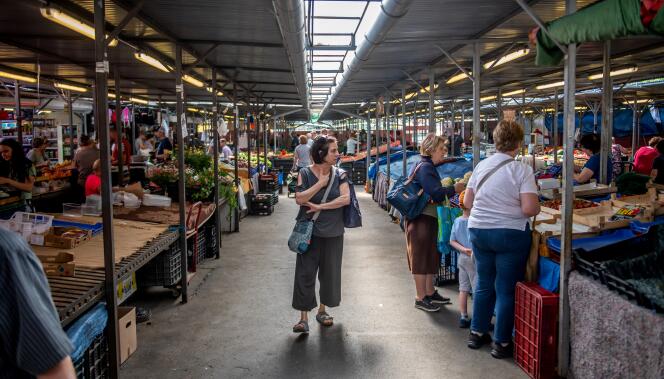“Bread, cheese, fruit…” The list of products whose prices have increased the most in recent years in Hungary, drawn up spontaneously by Gabriella Balint, a 51-year-old English teacher and tourist guide living in Budapest, is eloquent: these are above all basic foodstuffs. of the food of Hungarians. “And for rural people, it’s even more difficult”estimates this city dweller, who notes that even her mother’s small neighborhood restaurant has caused prices to explode: its lunch menu has gone from 1,900 forints (5 euros) to 2,800 forints (7.40 euros).
Over the past two years, Hungary has experienced the worst inflation in the entire European Union, with a cumulative price increase of more than 33%. At the beginning of November, the government of nationalist Viktor Orban was, however, finally able to celebrate the passage of the very symbolic annual rate below 10%, with a 9.9% increase recorded in October. “I am happy that we can keep the commitment we made to bring inflation below double digits”Gergely Gulyas, Mr. Orban’s chief of staff, rejoiced on November 9, while annual inflation was still reaching 25% at the start of 2023.
Food goods have increased by more than 60% in two years, with even higher peaks for products such as eggs and flour. This rise in prices resulted in a profound shock to the standard of living for the poorest Hungarians. The latter began to buy in larger quantities, in bulk – which lowers unit prices -, and to visit stores more frequently so as not to miss promotions. Already the country’s leading supermarket chain, the German discounter Lidl has further increased its market share, notably by offering a very popular “Save them!” basket. » which offers 3.5 kilograms of damaged or wilted fruits and vegetables for just 1 euro. Consumer loans also increased sharply.
Mechanical statistical effects
“Hungary was already facing very strong price pressure even before the Covid-19 epidemic, due to wage increases and lack of labor”explains Peter Virovacz, economist at the Hungarian branch of the ING bank. “But this then got worse due to the high energy dependence of its economy, the low productivity of its agri-food sector and the government’s measures to support households before the 2022 elections”he puts forward to explain this Hungarian first place in Central Europe which has generally experienced significantly higher inflation than in the West due to its proximity to Ukraine.
You have 50% of this article left to read. The rest is reserved for subscribers.
